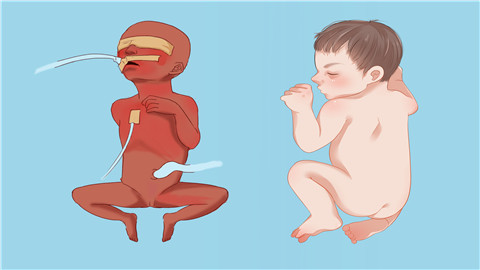How to Care for a Premature Infant
Generally, proper care for premature infants includes maintaining body temperature, appropriate feeding, environmental protection, skin care, and health monitoring. The details are as follows:

1. Temperature Maintenance: Premature infants have weak temperature regulation abilities, so it is necessary to maintain a stable ambient temperature using an incubator or warming clothing, avoiding excessively low temperatures or large fluctuations, ensuring the body temperature remains within the normal range to provide suitable conditions for physical development.
2. Appropriate Feeding: Choose suitable feeding methods according to the infant's weight and developmental status, such as breastfeeding or specialized formula milk for premature infants, feeding in small and frequent amounts to ensure adequate nutrient intake and promote growth and development.
3. Environmental Protection: Maintain a clean and hygienic living environment, limit visitation to prevent cross-infection, ensure appropriate indoor humidity and quietness, providing a peaceful and comfortable resting environment conducive to the infant's recovery.
4. Skin Care: The skin of premature infants is delicate; therefore, diapers should be changed frequently to avoid skin irritation from urine and feces. Clean the skin gently and use mild skincare products to prevent skin damage and potential infections.
5. Health Monitoring: Closely observe the premature infant's respiration, heart rate, feeding volume, weight gain, and other conditions, record changes in various indicators, promptly detect abnormalities and address them in a timely manner to ensure stable health conditions for the infant.
Caring for premature infants requires patience and attention to detail. All procedures should be gentle and standardized. If abnormal conditions such as rapid breathing, refusal to feed, or lack of weight gain occur, timely medical examination is necessary, following the guidance of professional healthcare personnel for proper care.





